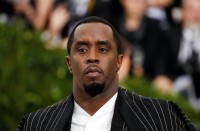by Catherine TRIOMPHE
Agence France Presse
NEW YORK, United States (AFP) — Could Harvey Weinstein, public enemy number one of the #MeToo movement. end up walking away a free man?
On Thursday, the onetime Hollywood heavyweight producer will be back in a New York courtroom as his star attorney Ben Brafman asks a judge to dismiss the sex assault charges against his client.
Brafman says police misconduct, specifically the work of one investigator, has “irreparably tainted” the case.
He will face off with prosecutors before Manhattan criminal court Judge James Burke for a hearing that could be a game changer for the 66-year-old Weinstein, who could face life in prison if convicted.
Though one charge against him has been thrown out, Weinstein — who was arrested in May — is still facing five counts over an alleged rape in March 2013 and a forced act of oral sex in 2006.
The disgraced movie mogul has been accused by more than 80 women of sexual misconduct. He insists that all of his sexual liaisons were consensual and is free on $1 million bail.
But the scandal upended his career and Weinstein became the poster boy for a cascade of abuse accusations against powerful men in Hollywood, the media and other industries.
His arrest and arraignments have led #MeToo campaigners to hope that the twice-married father of five will be put on trial, convicted and sent to prison.
But Brafman, one of America’s most celebrated defense attorneys, has made several dents in the prosecution’s case, including getting one count of a forced act of oral sex in 2004 — lodged by former actress Lucia Evans — thrown out in October.
Avalanche of mistakes
Prosecutors opted not to pursue the charge, after it emerged that one detective who worked on the investigation had failed to disclose witness testimony that contradicted Evans’s account.
A friend of Evans said she had heard her say that she had willingly engaged in oral sex with Weinstein to secure a movie role.
Brafman said the detective in question, Nicholas DiGaudio, made other mistakes.
He apparently told another accuser, Mimi Haleyi, who says Weinstein forced her into oral sex in 2006, to delete text messages that could be potentially embarrassing for her, despite prosecutors’ advice not to do so.
Prosecutors also apparently failed to disclose to the defense affectionate text messages Haleyi sent to Weinstein after the alleged assault, which would have introduced a notion of doubt about the forced nature of the encounter.
Prosecutors nevertheless want the case to continue and reject Brafman’s motion that the process is beyond repair.
They say everything in Haleyi’s mobile phone was turned over to investigators, and that the detective’s conduct only affected Evans’ case. DiGaudio has since been removed from the case.
As for emails, prosecutors say they are not obliged to share any of those with the defense at this stage of the proceedings.
‘Psychological coercion’
Nevertheless, since October, many experts speculate that the case against Weinstein has suffered a serious blow
Some even suggest that prosecutors will eventually cave, as they did in dismissing sex assault charges brought against former IMF chief Dominique Strauss-Kahn — also defended by Brafman — in 2011.
Barbara Barron, a professor at Hofstra University School of Law, says the detective’s conduct created a “surprise” in the Weinstein case.
“The issue to me is how much taint… how much the police officer’s actions influence the other charges,” Barron told AFP. “I dont know what the judge will consider.”
For Bennett Gershman, a former prosecutor who teaches law at Pace University, prosecutors threw out the charge related to Evans precisely to avoid contaminating the rest of the case.
“I know Brafman is going to argue to dismiss the whole indictment. He is going to lose that without any doubt,” Gershman said
He added that he still believes prosecutors have a solid case with the two remaining accusers, no matter what they said to Weinstein after the alleged assaults.
“These women saying nice things to Weinstein — would that surprise anybody? You have a hugely powerful man (…) who literally controlled their reputation and their careers,” Gershman said.
If the case is not thrown out, Brafman will likely argue for all other Weinstein accusers to be barred from testifying.
In the case against veteran television star Bill Cosby, the depositions of five women who did not bring complaints against him were admitted into evidence for his second trial.
Cosby was convicted and sentenced to at least three years in prison in the first court win for the #MeToo movement.
If the judge decides to allow the case to continue, he could set a trial date on Thursday.
If that happens, Gershman says the jury will have to decide: “Did they consent or did they consent involuntarily?”
“If these women testify strongly on the witness stand, Weinstein will lose,” he predicted.
© Agence France-Presse








